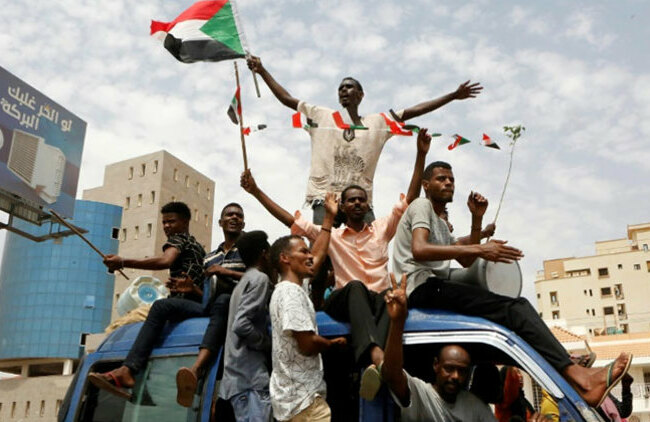Sudan's year of change, sparked by bread price protests
Dec 17, 2019
Protests erupt on December 19, 2018 against a government decision to triple bread prices.

Unprecedented protests that kicked off in Sudan a year ago led to the ousting of president Omar al-Bashir after 30 years in power and set the course for civilian rule.
Here is a recap of the country's year of change.
Price protests grow
Protests erupt on December 19, 2018 against a government decision to triple bread prices.
They quickly spread across the country, becoming almost daily rallies demanding that Bashir quit after three decades of iron-fisted rule.
On February 22 Bashir imposes a state of the emergency banning unauthorised protests.
On April 6, thousands gather outside army headquarters in Khartoum, pleading for the military's support against Bashir. They will stay put for months.
On April 11, military authorities remove Bashir from power and detain him. They announce the creation of a transitional military council to govern for two years.
Protest leaders denounce a military coup and demand a civilian government.
Defying a curfew, thousands of demonstrators remain camped in front of army headquarters.
Protest leaders and army rulers hold a first round of talks on April 20.
A week later they agree to form a civilian-military council to govern during a transition. But major differences remain on the make-up of the council.
Bloody crackdown
On June 3, armed men in military fatigues move in on the protest camp outside army headquarters and disperse thousands of protesters.
In the ensuing days-long crackdown, scores are killed.
On June 9, protest leaders launch a nationwide campaign of civil disobedience that paralyses the country for two days.
On June 30, tens of thousands of protesters again rally. Security forces are deployed en masse and police fire tear gas at crowds. Several people are killed.
On July 29, six demonstrators, including four school students, are shot dead during a rally in the central town of Al-Obeid.
Doctors linked to the protest movement say in late July that more than 250 people were killed in protest-related violence since December.
 Sudanese women have been at the forefront of the protests.AFP/File / Ebrahim Hamid
Sudanese women have been at the forefront of the protests.AFP/File / Ebrahim Hamid
Power deal agreed
On August 17, after weeks of intense efforts, the military rulers and protest leaders sign a hard-won "constitutional declaration" under which a sovereign council of six civilians and five military figures will govern for a 39-month transition period.
On August 21, General Abdel Fattah al-Burhan is sworn in as head of the council for the first 21 months.
A civilian will take over for the remaining period of transition with democratic elections due in 2022.
Economist Abdalla Hamdok is confirmed as prime minister and his government sworn in on September 8.
On September 22, he forms a committee to probe the June crackdown on the protest camp in Khartoum.
On November 28, the new authorities order the dissolution of Bashir's Islamist National Congress Party and confiscation of its assets, a key demand of protesters.
The ousted president is sentenced on December 14 to two years' detention for corruption, in the first of several cases against him.
